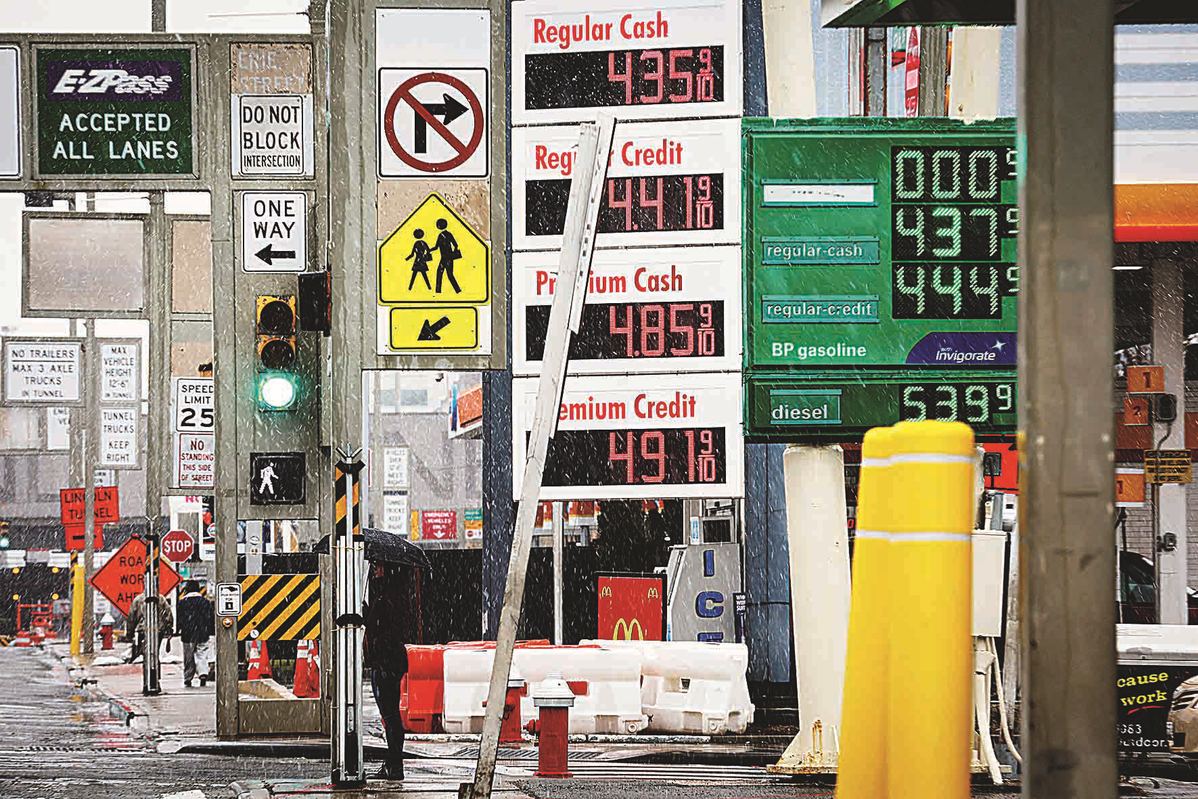Rising gasoline prices hit the US hard


Average cost of the fuel nationwide surges to record high
At the Costco gasoline station in Sunnyvale, California, on Saturday, a driver who asked to be identified only as Francisco paid more than $106 for 20 gallons (nearly 76 liters) of fuel, the cheapest price he could find that morning.
Francisco, who owns a landscaping business in the San Francisco Bay Area, recently started to use the Gas-Buddy app to save money on fuel. The app traces real-time prices at gasoline stations in the United States, Canada and Australia.
According to Francisco, the price of gasoline in his area has risen by at least 30 percent since last month.
His two trucks and other equipment, such as lawn mowers and leaf blowers, all use gas. If prices continue to rise, Francisco said, he would have to pass on the extra cost to clients, which will be "really bad" for his business.
Gasoline prices moved closer to $6 per gallon on Saturday at stations across the Bay Area, with the highest prices reported in Marin County, Napa and San Francisco, where they went beyond $5.90 per gallon.
The average price for gasoline in the US surged to a record high last week as the Russia-Ukraine conflict heightened concerns that it might disrupt supplies of oil from Russia. However, the average nationwide price on Saturday fell to $4.26 from a peak of $4.33 on March 11, which surpassed the previous high of $4.10 in 2008.
In California, gasoline prices have risen steadily. The statewide average price climbed from $5.44 per gallon early this month to $5.69 a week ago and then to $5.83 per gallon on Saturday, according to the American Automobile Association.
The state has the most expensive gasoline in the US. Experts said this is partly due to its higher gas tax and tougher environmental and emissions laws.
Kevin Slagle, vice-president of strategic communications at the Western States Petroleum Association, said California is also a "fuel island"-a location that does not receive any fuel through interstate pipelines.
California's fuel supplies are either produced in the state or transported there by ship or truck, with related costs passed on to consumers.























